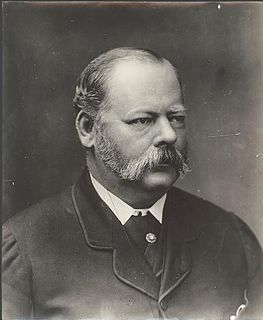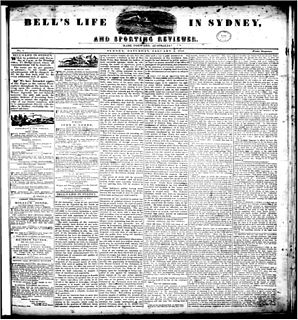Related Research Articles

Earl Ferrers is a title in the Peerage of Great Britain. It was created in 1711 for Robert Shirley, 14th Baron Ferrers of Chartley. The Shirley family descends from George Shirley of Astwell Castle, Northamptonshire. In 1611 he was created a Baronet, of Staunton Harold in the County of Leicester, in the Baronetage of England. He was succeeded by his son, the second Baronet. He married Lady Dorothy Devereux, daughter of Robert Devereux, 2nd Earl of Essex. On the death of her brother Robert Devereux, 3rd Earl of Essex, she became the youngest co-heir to the baronies of Ferrers of Chartley and the barony of Bourchier, which had fallen into abeyance on the death of the third Earl. Shirley was succeeded by his eldest son, the third Baronet. He died unmarried and was succeeded by his younger brother, the fourth Baronet. He was imprisoned in the Tower of London by Cromwell and died there in 1656. On his death the title passed to his eldest son, the fifth Baronet. He died at an early age and was succeeded at birth by his posthumous son, the sixth Baronet.

Sir Francis "Frank" Darwin was a British botanist. He was a son of the naturalist and scientist Charles Darwin, and brother of George Howard Darwin, Horace Darwin, and Leonard Darwin.

Thomas Waddell, an Australian politician, was a member of the New South Wales Legislative Assembly from 1887 to 1917, was briefly the premier of New South Wales during 1904, and was a member of the New South Wales Legislative Council from 1917 to 1934. His 75 days in office marks the shortest tenure of any New South Wales premier.

Sir Patrick Alfred Jennings, was an Irish-Australian politician and Premier of New South Wales.

Arthur Macalister, was three times Premier of Queensland, Australia.
Northumberland and Hunter was an electoral district for the Legislative Assembly in the Australian state of New South Wales from 1856 to 1859, in the Newcastle area and named after Northumberland County and the Hunter River. It elected three members, with voters casting three votes and the first three candidates being elected. For the 1859 election it was replaced by Northumberland and the remainder was divided between Hunter and Lower Hunter.
The following lists events that happened during 1876 in Australia.
Sir George Macleay was an Australian explorer and politician.

Walter Devereux, 10th Baron Ferrers of Chartley, created 1st Viscount Hereford, KG was an English courtier and parliamentarian.
Edward Phillip Pickering is a former Australian politician. He was a Liberal Member of the New South Wales Legislative Council from 1976 to 1995.
Members of the New South Wales Legislative Assembly who served in the eighth parliament of New South Wales held their seats from 1874 to 1877.</ref> The 1874–75 election was held between 8 December 1874 and 12 January 1875 with parliament first meeting on 27 January 1875. There were 72 members elected for 52 single member electorates, 6 two member electorates and 2 four member electorates. During this parliament the number of graduates of Sydney University exceeded 100 and the seat of University of Sydney was created. The maximum term of this parliament was 3 years and the assembly was dissolved after 34 months. Premiers during this parliament were Sir John Robertson 9 February 1875 till 22 March 1877 and from 17 August 1877 and Sir Henry Parkes 22 March 1877 till 17 August 1877. The Speaker was William Arnold until his death on 1 March 1875 and then George Allen.
Ernest Albert Buttenshaw was an Australian politician and member of the New South Wales Legislative Assembly from 1917 until 1932. He was a member of the Nationalist Party of Australia until 1920, when he helped to establish the Progressive Party. After 1925 he was a member of its successor, the Country Party. He was the party leader between 1925 and 1932 and held a number of government ministries.
Members of the New South Wales Legislative Council between 1976 and 1978 were indirectly elected by a joint sitting of the New South Wales Parliament, with 15 members elected every three years. The most recent election was on 27 November 1975, with the term of new members commencing on 23 April 1976. The terms of members were affected by the 1978 referendum which provided for the direct election of members of the Legislative Council. The members whose terms were due to expire in 1979 or 1982 had their terms expire at the next general election, held in 1978, those members whose terms were to expire in 1985 would retire at the second general election, held in 1981, and those members whose terms were to expire in 1988 would retire at the third general election, held in 1984.

Bell's Life in Sydney and Sporting Reviewer, also published as Bell’s Life in Sydney and Sporting Chronicle, was a weekly English language newspaper published in Sydney, New South Wales, Australia between 1845 and 1870.
Charles Whittingham (1795–1876) was an English printer, a nephew of Charles Whittingham (1767–1840) who took over the Chiswick Press from his uncle.
John George Kilburn was an English-born Australian politician.
George Edwin Wrench was an English-born Australian politician.
Eastern Suburbs, an electoral district of the Legislative Assembly in the Australian state of New South Wales was created in 1920 and abolished in 1927.
Goldfields North, an electoral district of the Legislative Assembly in the Australian state of New South Wales was created in 1859 and abolished in 1880.
A by-election was held for the New South Wales Legislative Assembly electorate of Goldfields North on 17 December 1868 because of the resignation of George Pickering.
References
- ↑ "Mr George Ferrers Pickering". Former Members of the Parliament of New South Wales . Retrieved 22 May 2019.